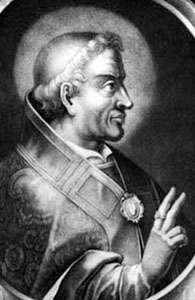536
| Millennium: | 1st millennium |
|---|---|
| Centuries: | |
| Decades: | |
| Years: |
| 536 by topic |
|---|
| Leaders |
| Categories |
|
| Gregorian calendar | 536 DXXXVI |
| Ab urbe condita | 1289 |
| Assyrian calendar | 5286 |
| Balinese saka calendar | 457–458 |
| Bengali calendar | −57 |
| Berber calendar | 1486 |
| Buddhist calendar | 1080 |
| Burmese calendar | −102 |
| Byzantine calendar | 6044–6045 |
| Chinese calendar | 乙卯年 (Wood Rabbit) 3232 or 3172 — to — 丙辰年 (Fire Dragon) 3233 or 3173 |
| Coptic calendar | 252–253 |
| Discordian calendar | 1702 |
| Ethiopian calendar | 528–529 |
| Hebrew calendar | 4296–4297 |
| Hindu calendars | |
| - Vikram Samvat | 592–593 |
| - Shaka Samvat | 457–458 |
| - Kali Yuga | 3636–3637 |
| Holocene calendar | 10536 |
| Iranian calendar | 86 BP – 85 BP |
| Islamic calendar | 89 BH – 88 BH |
| Javanese calendar | 423–424 |
| Julian calendar | 536 DXXXVI |
| Korean calendar | 2869 |
| Minguo calendar | 1376 before ROC 民前1376年 |
| Nanakshahi calendar | −932 |
| Seleucid era | 847/848 AG |
| Thai solar calendar | 1078–1079 |
| Tibetan calendar | 阴木兔年 (female Wood-Rabbit) 662 or 281 or −491 — to — 阳火龙年 (male Fire-Dragon) 663 or 282 or −490 |

Pope Agapetus I (535–536)
Year 536 (DXXXVI) was a leap year starting on Tuesday (link will display the full calendar) of the Julian calendar. At the time, it was known as the Year after the Consulship of Belisarius (or, less frequently, year 1289 Ab urbe condita). The denomination 536 for this year has been used since the early medieval period, when the Anno Domini calendar era became the prevalent method in Europe for naming years.
Events
By place
Byzantine Empire
- Spring – Emperor Justinian I appoints his cousin Germanus as magister militum to deal with the crisis in Africa. He sends a mobile force of comitatenses (mostly cavalry) and an elite guard. Solomon returns to Constantinople.[1]
- Summer – Gothic War: Belisarius crosses the Strait of Messina and invades Italy. He conquers the city of Rhegium and advances to Naples.
- October – Siege of Naples: Belisarius captures Naples after a month's siege, by sending troops into the city through an abandoned Roman aqueduct.
- December 9 – Belisarius enters Rome through the Asinarian Gate; the Gothic garrison (4,000 men) flee the capital. He sends an urgent request for reinforcements to Justinian I, meanwhile preparing Rome for a siege by bringing in great quantities of food and other supplies.[2]
- Winter – Belisarius sets up his headquarters on the Pincian Hill and repairs the neglected city walls of Rome. He stations a 5,000-man garrison, of whom half are his personal bodyguard (bucellarii). To hold parts of the city, he recruits 20,000 young Romans to man the walls.
Europe
- March – King Theodahad cedes Provence and upper Alamannia to the Franks gaining their support in the war. He sends a large Gothic army into Dalmatia. They defeat the Byzantines, Mundus is killed during the fightings at Salona, and the Byzantine army withdraws.[3]
- Summer – Constantinianus, magister militum per Illyricum, retakes Dalmatia. The Goths abandon Salona and withdraw to the north. The Byzantines rebuild its walls and reclaim the province.[4]
- Vitiges deposes his rival Theodahad at Ravenna and marries Matasuntha (daughter of queen Amalasuntha). He becomes king of the Ostrogoths and assembles an army to fight against Belisarius.
Africa
Asia
- Senka succeeds his brother Ankan as the 28th emperor of Japan.
By topic
Religion
- April 22 – Pope Agapetus I dies in Constantinople after a reign of just ten months. He is succeeded by Silverius as the 58th pope.
- Anthimus I is deposed as patriarch of Constantinople, in favour of Menas.
- The Little Hagia Sophia in Constantinople (begun in 527) is completed.
Meteorology
- Extreme weather events, thought to have been caused by an extensive veil of dust in the atmosphere, begin in the Northern Hemisphere. They continue until the following year, causing unseasonal weather and crop failure worldwide.[n 1] It is possible this was caused by the eruption of Ilopango.
Births
- Evagrius Scholasticus, Syrian church historian (or 537)
- Li Ezi, Chinese empress of Northern Zhou (d. 588)
- Venantius Fortunatus, Merovingian bishop (approximate date)
Deaths
- April 22 – Pope Agapetus I
- Ankan, emperor of Japan
- Theodahad, king of the Ostrogoths (assassinated)
- Mundus, Byzantine general (killed in battle)
Notes and references
Notes
- ↑ Famine is described as "U536.3, Failure of bread" in the Annals of Ulster.[5]
References
- ↑ Bury, 1958 & p. 143–144
- ↑ Bury (1923), Ch. XVIII, p. 180
- ↑ Bury (1923), Vol. II, Ch. XVIII, p. 174
- ↑ Procopius, De Bello Gothico I.VII
- ↑ Bambury, Beechinor 2000, pp. U536.3.
Secondary sources
- Bambury, Pádraig; Beechinor, Stephen (2000). "The Annals of Ulster" (Electronic edition compiled by the CELT Team (2000) ed.). CELT: Corpus of Electronic Texts: a project of University College Cork College Road, Cork, Ireland—http://www.ucc.ie/celt.
This article is issued from
Wikipedia.
The text is licensed under Creative Commons - Attribution - Sharealike.
Additional terms may apply for the media files.